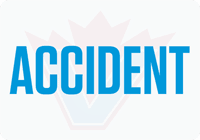FIRST Nations, Métis and Inuit patients seeking emergency medical services in British Columbia are often assumed to be intoxicated and denied medical assessments, contributing to worsening health conditions resulting in unnecessary harm or death. This is according to information obtained by Métis Nation BC and the BC Association of Aboriginal Friendship Centres. Additionally, the parties have notified the First Nations Health Authority of this concern.
Participants within the San’yas Indigenous Cultural Safety Training program detail thousands of cases of racism in healthcare, resulting in the harm of Indigenous patients. In a recent training session, a program participant disclosed a common game played within B.C. hospital emergency rooms, where physicians, nurses and other staff try to guess the blood alcohol concentration (BAC) of Indigenous patients. The winner of the game guesses closest to the BAC – without going over.
“There remains a lack of will to address systemic and specific racism towards Métis, First Nation and Inuit people,” says Leslie Varley, Executive Director of the BC Association of Aboriginal Friendship Centres (BCAAFC), “We know that our people avoid hospitals because we are afraid of having a discriminatory encounter. This happens to the point where Indigenous people end up in emergency with extreme diagnosis, like cancer.”
“What is allegedly happening in BC hospitals to Métis, First Nations and Inuit peoples is deeply disturbing and must immediately come to an end” says Daniel Fontaine, Chief Executive Officer for the Métis Nation BC. “We remain committed to work with Provincial Health Services Authority to increase Métis specific content curriculum to increase the knowledge and understanding of healthcare providers serving Métis people to ensure improved care and culturally safe experiences in BC”.
The Province of Ontario made San’yas training mandatory for every employee in the Ontario Public Service in 2016. The Province of B.C. has yet to enforce standardized anti-racism training for health service workers. BC Health Authorities are inconsistent in their requirements for anti-racism training despite evidence that racism is prevalent within health systems. Cases of systemic and racialized harm and death continue to be looked at as a medical learning opportunity.
BCAAFC and MNBC, Indigenous leadership are calling upon the Ministry of Health to accept the following four recommendations:
- A public inquiry into Indigenous specific racism in health care in B.C with a focus on hospitals and emergency departments.
- Ensure that all front-line staff are required to take mandatory First Nations, Métis and Inuit training that results in increased health professional personal accountability in the delivery of safe health care.
- Commit to structural and systemic changes to dismantle indigenous specific racism to ensure culturally safe health care experiences for Indigenous people.
- Ensure that Indigenous governments play a stronger role in the development and implementation of anti-racism programs and training throughout BC.
Implementing these recommendations helps address the Truth and Reconciliation Commission of Canada’s Calls to Action and would signify the beginning of concrete changes within the Province of B.C.’s health system.
MNBC and BCAAFC agree the way for the Province of BC to properly acknowledge National Indigenous People’s Day on June 21st would be to address the longstanding racism concerns of Métis, First Nations and Inuit people in our province.
MNBC and BCAAFC agree the way for the Province of BC to properly acknowledge National Indigenous People’s Day on June 21 would be to address the longstanding racism concerns of Métis, First Nations and Inuit people in our province.









